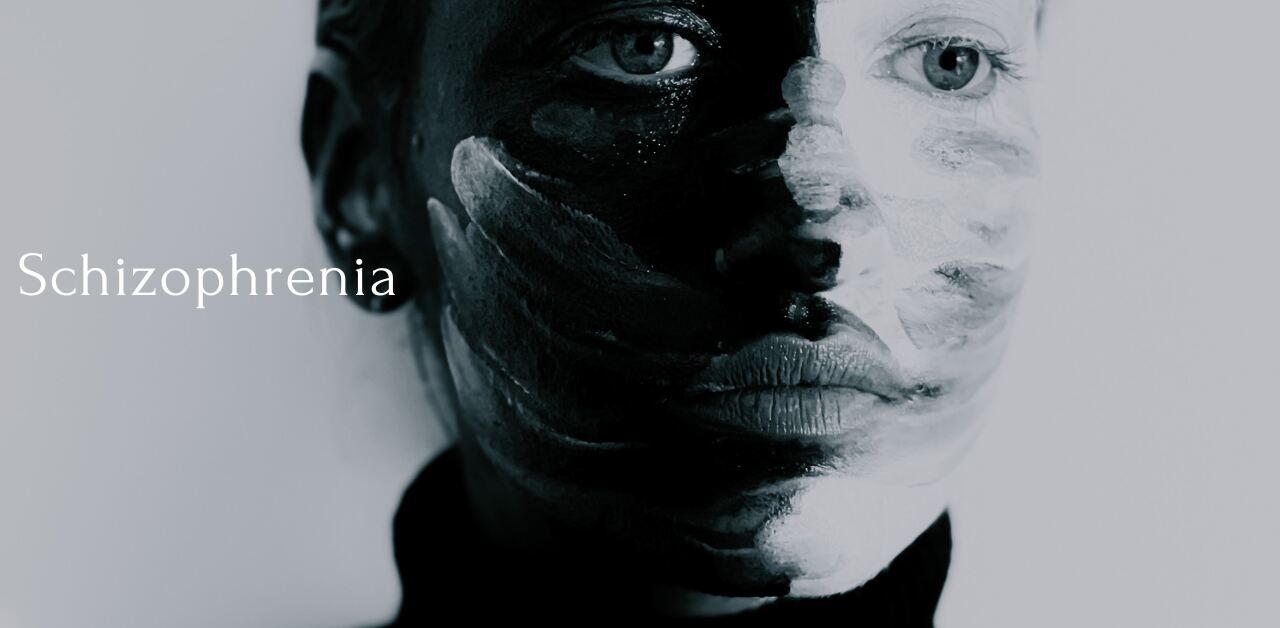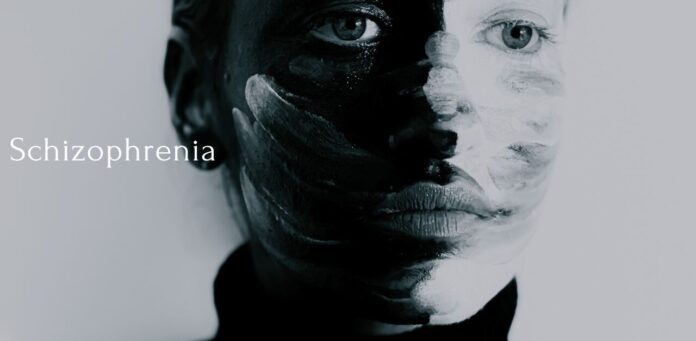Understanding Schizophrenia: Types, Symptoms, and Treatment
Schizophrenia is a complex mental health condition that manifests in various forms, each with its own unique characteristics. This article delves into the nuances of schizophrenia, exploring its types, symptoms, and available treatments.

Defining Schizophrenia:
Schizophrenia is a profound mental disorder marked by distorted thoughts, emotions, and perceptions. Understanding its distinct types is crucial for a comprehensive grasp of the condition.
Key facts about schizophrenia
Schizophrenia and psychosis:
- Schizophrenia leads to psychosis.
- It is linked to a significant disability.
Impact on Life: Affects various aspects of life:
- Personal
- Family
- Social
- Educational
- Occupational functioning
Challenges Faced:
- Stigma and discrimination are common.
- Human rights violations are prevalent.
Access to Mental Health Care: Over two-thirds of people with psychosis worldwide do not receive specialist mental health care.
Effective Care Options: Despite challenges, there are effective care options for schizophrenia.
Recovery Possibility: At least one in three individuals with schizophrenia can achieve full recovery.
Types of schizophrenia:
Schizophrenia: Schizophrenia is a subtype of schizophrenia, a severe mental disorder characterized by disturbances in thought processes, perceptions, emotions, and behavior. Specifically, individuals with schizophrenia primarily experience symptoms related to paranoia, delusions, and auditory hallucinations.
Note: Here you are not advised to do that. You must consult your doctor before doing it.
Key features of schizophrenia include the following:
Delusions: These delusions often revolve around themes of persecution, conspiracy, or grandiosity. For example, a person may believe that they are being targeted, spied on, or plotted against.
Hallucinations: These voices may reinforce the individual’s delusional beliefs or provide commentary on their actions.
Paranoia: There is a pervasive sense of distrust and suspicion. Individuals may be hyper-vigilant, feel constantly threatened, and have difficulty trusting others.
Emotional Disturbances: However, they may also experience intense emotional responses in reaction to their delusions or hallucinations.
Cognitive Impairment: Individuals experience extreme paranoia, delusions, and hallucinations.
Disorganized Schizophrenia: Disorganized or hebephrenic schizophrenia refers to an individual with schizophrenia exhibiting the following symptoms:
- Disorganized thinking.
- Unusual speech patterns.
- Flat affect.
- Emotions that are mismatched with the situation.
- Incongruent facial reactions.
- Difficulty performing daily activities.
Disorganized thinking, speech, and behavior are prominent features of this subtype.
Catatonic Schizophrenia: Catatonic schizophrenia is an uncommon and severe mental disorder marked by specific motor behaviors. This behavior often reflects a marked reduction in voluntary activity or, conversely, elevated levels of hyperactivity and arousal. In some instances, individuals with this condition may adopt almost complete immobility, reminiscent of statues. Marked by motor disturbances ranging from immobility to excessive movement.
Symptoms associated with catatonic schizophrenia may encompass:
- Stupor: A state closely resembling unconsciousness.
- Catalepsy: Trance seizures characterized by a rigid body.
- Waxy Flexibility: Limbs maintain positions as placed by another person.
- Mutism: lack of verbal response.
- Negativism: absence of response to stimuli or instructions.
- Posturing: holding postures in defiance of gravity.
- Mannerism: Displaying odd and exaggerated movements.
- Stereotypy: engaging in repetitive movements without apparent reason.
- Agitation: not influenced by external stimuli.
- Grimacing: contorted facial movements.
- Echolalia: meaningless repetition of another person’s words.
- Echopraxia is the meaningless repetition of another person’s movements.
Causes of catatonia
The origins of catatonia can differ among individuals, but researchers suggest that the principal cause involves irregularities in the dopamine, gamma-aminobutyric acid (GABA), and glutamate neurotransmitter systems.
Recognizing Signs and Symptoms of Schizophrenia:
Recognizing signs and symptoms of schizophrenia is crucial for early intervention and effective management of the condition. Schizophrenia is a complex mental health disorder that can manifest in a variety of ways. The main indicators and symptoms to be aware of are
Positive and negative symptoms of schizophrenia:
Positive symptoms:
Delusions, hallucinations, and disorganized thoughts.
The post outlines positive symptoms of schizophrenia, characterized by exaggerated ideas, perceptions, or actions indicating a struggle to distinguish reality. These symptoms include:
Hallucinations:
- Auditory: hearing voices with various tones and demands.
- Visual: seeing lights, objects, people, or patterns, often deceased loved ones.
- Olfactory and gustatory: experiencing unusual smells or tastes, leading to refusal to eat.
- Tactile: Sensation of things moving on the body, like hands or insects.
Delusions:
- Persecutor: feeling targeted or stalked.
- Referential: believing public communication is personally directed to them.
- Somatic: having irrational health concerns, like worms under the skin.
- Erotomanic: believing in romantic connections with celebrities or unfounded suspicions of infidelity.
- Religious: holding special relationships with deities or feeling possessed.
- Grandiose: Considering oneself a significant world figure.
Confused thoughts and disorganized speech: Difficulty organizing thoughts, zoning out during conversations, and speech that may be jumbled or nonsensical.
Trouble concentrating: Difficulty maintaining focus, such as losing track of TV show plots.
Movement disorders:
- Jumpy movements or repetitive actions.
- Catatonia: prolonged periods of stillness.
It’s emphasized that, contrary to popular belief, individuals with schizophrenia are not typically violent.
Negative Symptoms:
Reduced emotional expression, social withdrawal, and cognitive deficits. The post describes negative symptoms of schizophrenia, indicating an absence or lack of normal mental function in thinking, behavior, and perception. Key points include:
- Lack of pleasure (anhedonia): The person no longer seems to enjoy activities.
- Trouble with speech (Alogia): reduced speech or lack of emotional expression in conversation.
- Flattening (Affective flattening): The individual appears emotionally flat, lacking usual facial expressions or emotional responses when speaking.
- Withdrawal (apathy): social withdrawal, avoiding making plans with friends, and difficulty in communication.
- Struggling with the basics of daily life: neglecting personal hygiene and self-care.
- No follow-through (avolition): difficulty sticking to schedules, completing tasks, or initiating activities.
The post also notes that these symptoms can overlap with depression, making it challenging to distinguish in certain cases, especially in teenagers who may naturally experience emotional swings.
Recognizing the Signs and Symptoms:
Early detection is crucial for effective management. Common signs include social isolation, erratic behavior, and impaired cognitive functions.
Treatment Approaches:
- Medication: Antipsychotic drugs play a central role in managing symptoms and preventing relapses.
- Therapy: Cognitive-behavioral therapy and Psychosocial interventions aid individuals in coping with daily challenges.
Medication for Schizophrenia:
- Antipsychotic Medications: Exploring the various classes of antipsychotics and their specific effects on symptomatology.
- Holistic Approaches to Treatment: Integrating lifestyle modifications, family support, and community involvement enhances the overall well-being of individuals with schizophrenia.
- Future Directions in Schizophrenia Research: A glimpse into ongoing research and potential breakthroughs, offering hope for improved treatments and understanding.
In conclusion:
Unraveling the complexities of schizophrenia is crucial for promoting awareness and facilitating empathetic support. By exploring its types, symptoms, and treatment options, we contribute to a more compassionate understanding of this challenging mental health condition.
FAQs on Understanding Schizophrenia: Types, Symptoms, and Treatment
Q1: What is schizophrenia?
A1: The severe mental illness called schizophrenia is characterized by warped feelings, ideas, and perceptions.
Q3: What are the positive symptoms of schizophrenia?
A3: Positive symptoms include delusions, hallucinations, and disorganized thoughts.
Q4: What are the negative symptoms of schizophrenia?
A4: Negative symptoms encompass reduced emotional expression, social withdrawal, and cognitive deficits.
Q5: How can one recognize the signs and symptoms of schizophrenia?
A5: Early detection involves identifying signs such as social isolation, erratic behavior, and impaired cognitive functions.
Q6: What are the treatment approaches for schizophrenia?
A6: Treatment includes medication (antipsychotic drugs) and therapy (cognitive-behavioral therapy, Psychosocial interventions).
Q7: What medications are used for schizophrenia?
A7: Antipsychotic medications are commonly prescribed, with various classes explored for specific effects on symptomatology.
Q8: Are there holistic approaches to schizophrenia treatment?
A8: Yes, integrating lifestyle modifications, family support, and community involvement contributes to overall well-being.
Q9: How does ongoing research impact schizophrenia treatment?
A9: Ongoing research holds promise for future breakthroughs, potentially leading to improved treatments and understanding.
Q10: Why is early detection important for schizophrenia?
A10: Early detection allows for effective management and prevention of relapses, improving long-term outcomes for individuals with schizophrenia.





[…] is key to breaking down barriers. Marshall, MN, conducts regular workshops and awareness programs to educate residents on mental health, reducing stigma and promoting […]
[…] paramount. Schizoaffective disorder is a complex mental health condition that combines features of schizophrenia and mood disorders. It affects individuals’ thoughts, emotions, and behaviors, often […]
[…] disruptions to a person’s thoughts and perceptions, leading to distortions of reality. Schizophrenia is the most well-known psychotic disorder, characterized by hallucinations, delusions, and […]
[…] Schizophrenia: While the exact genetic mechanisms underlying schizophrenia are complex and multifaceted, genetic predisposition is considered a significant factor in its development. […]
[…] that affect mood, thinking, and behavior. Examples include depression, anxiety disorders, schizophrenia, eating disorders, and addictive behaviors. These conditions can be long-lasting and can affect […]
[…] Schizophrenia is a severe mental disorder characterized by hallucinations, delusions, and impaired thinking and behavior. […]